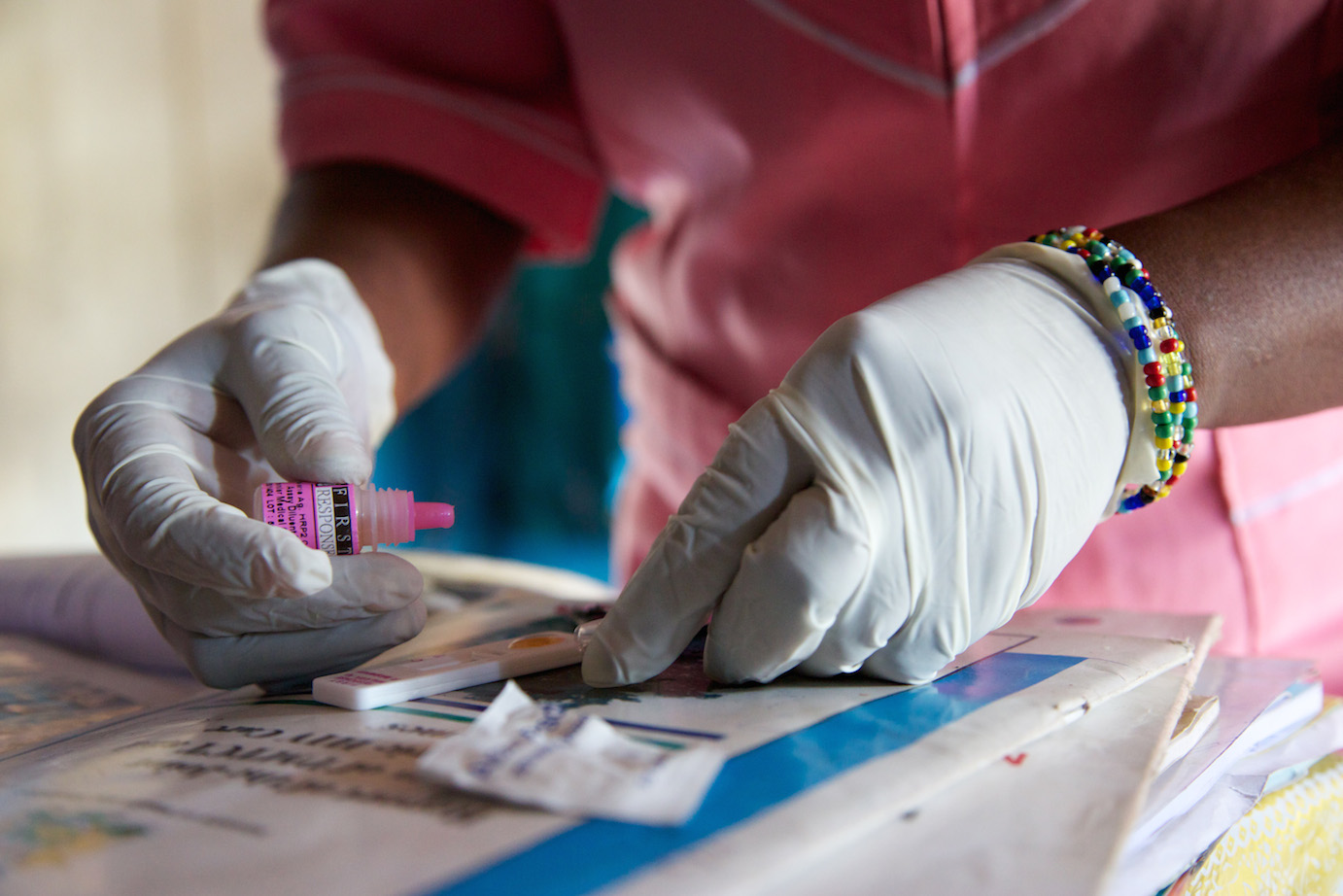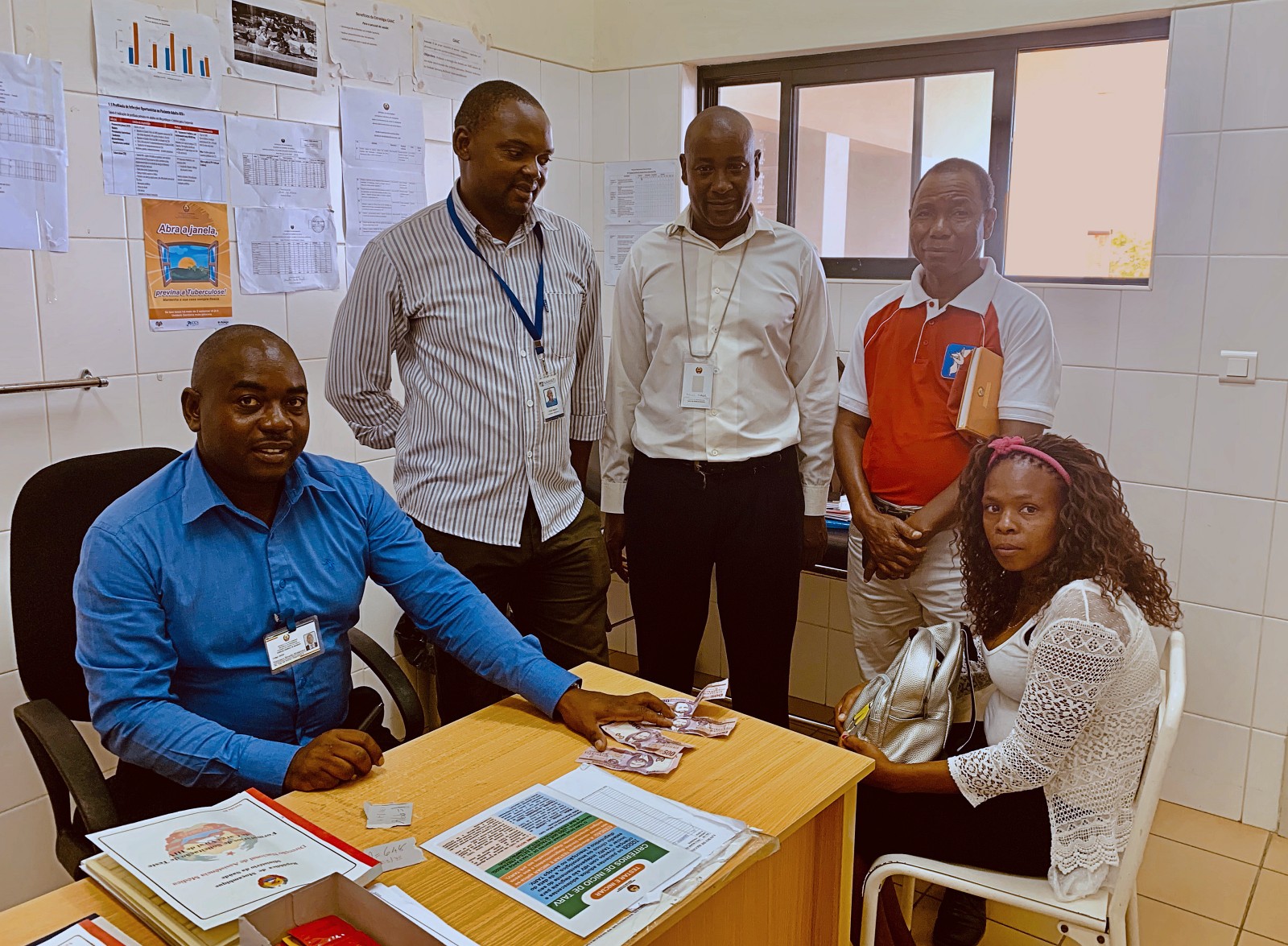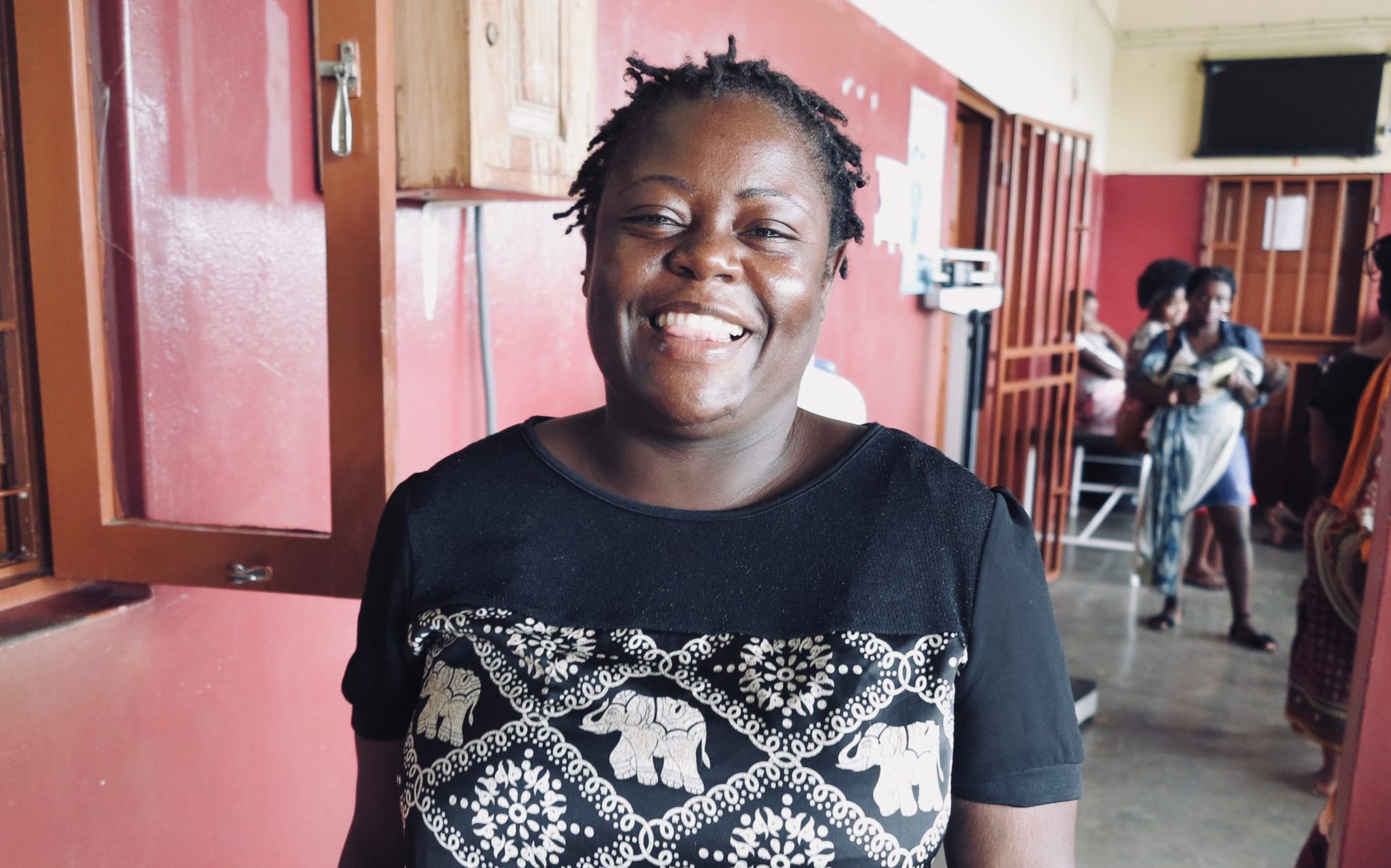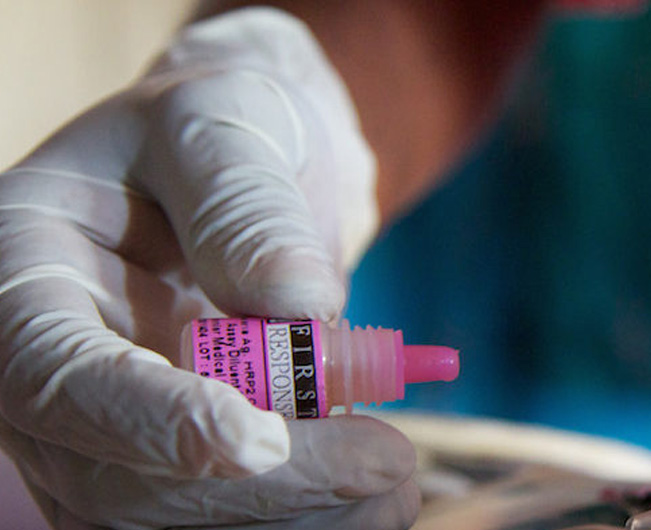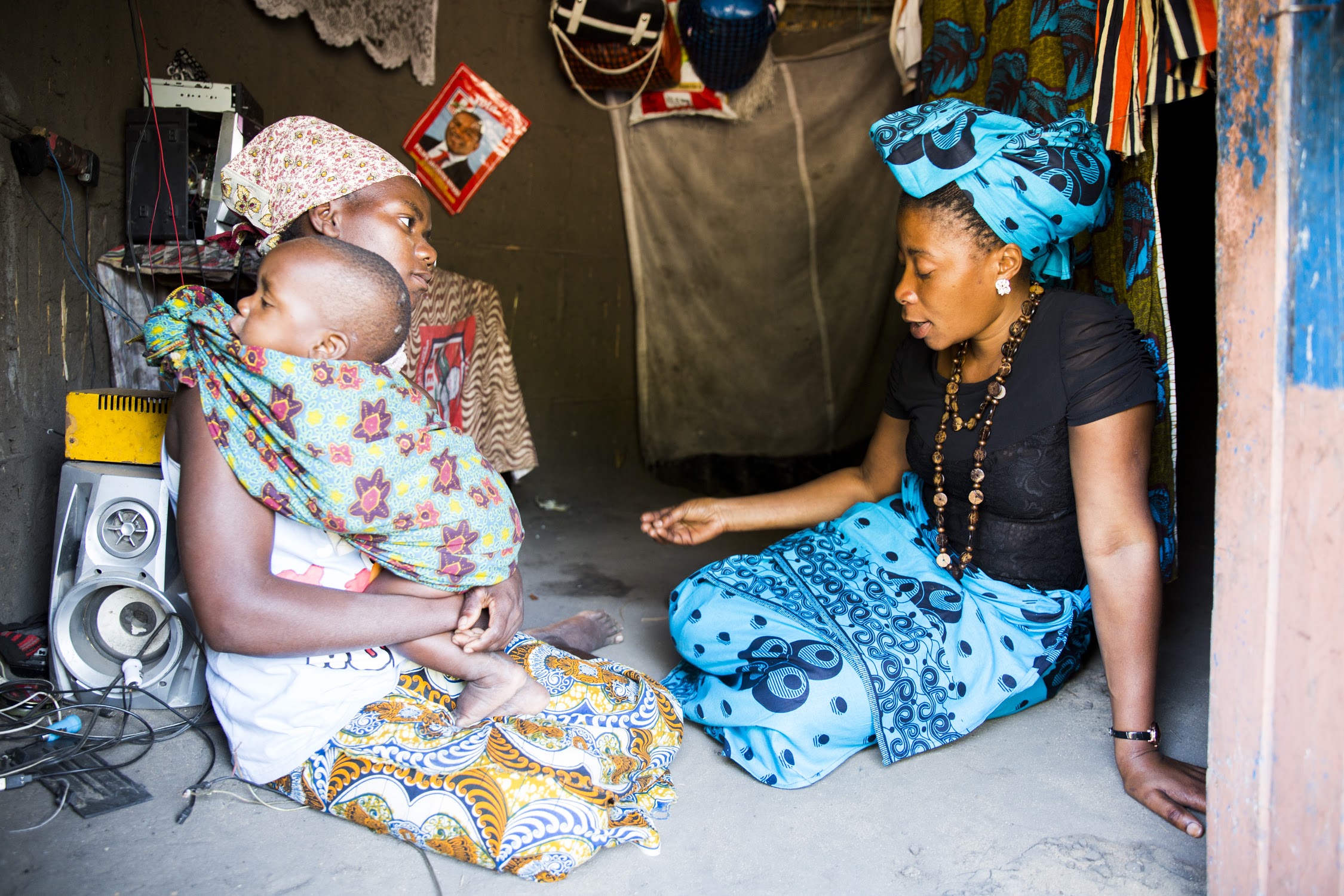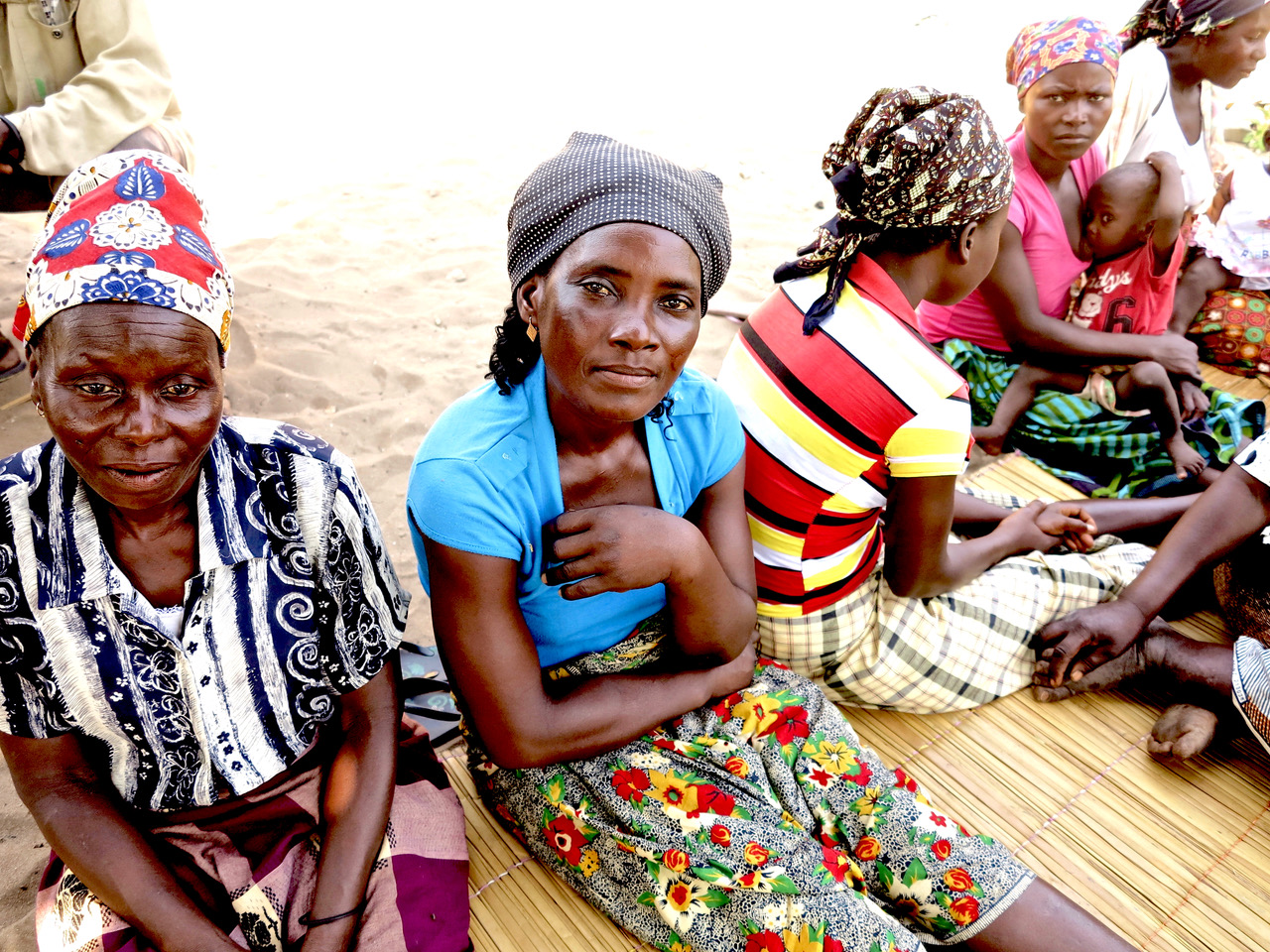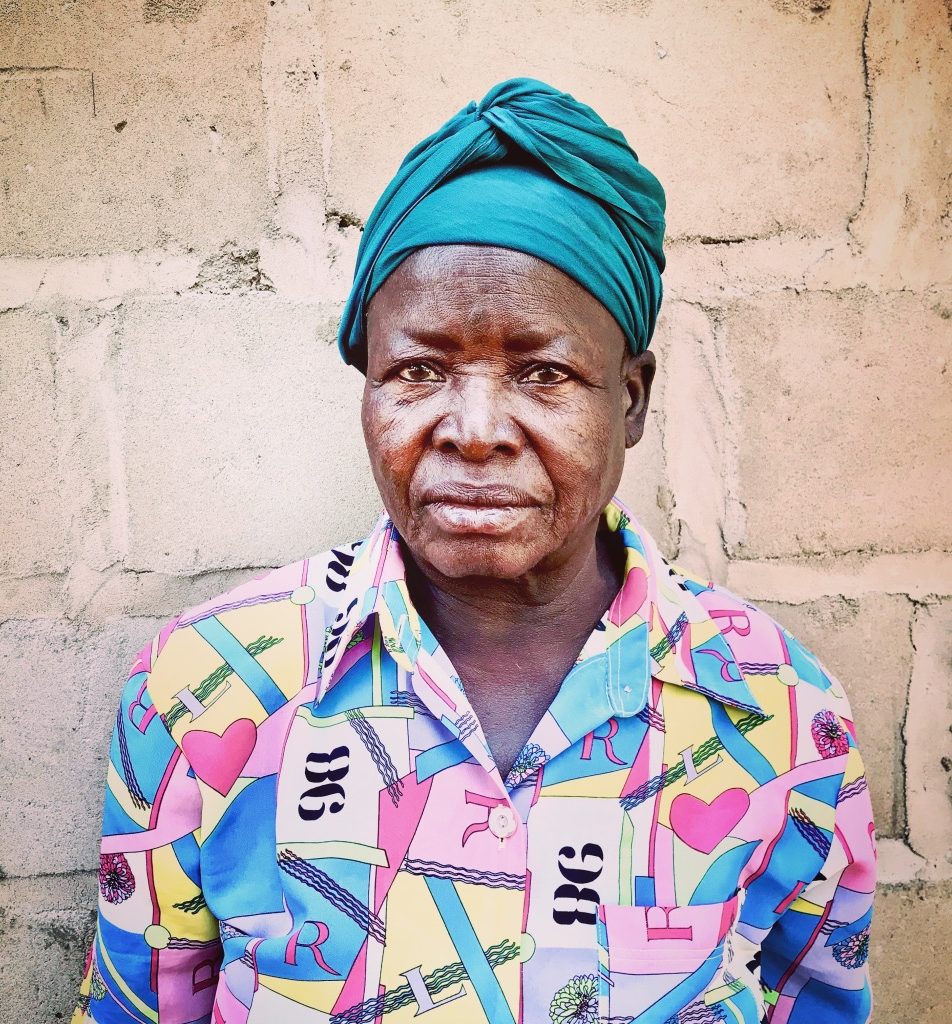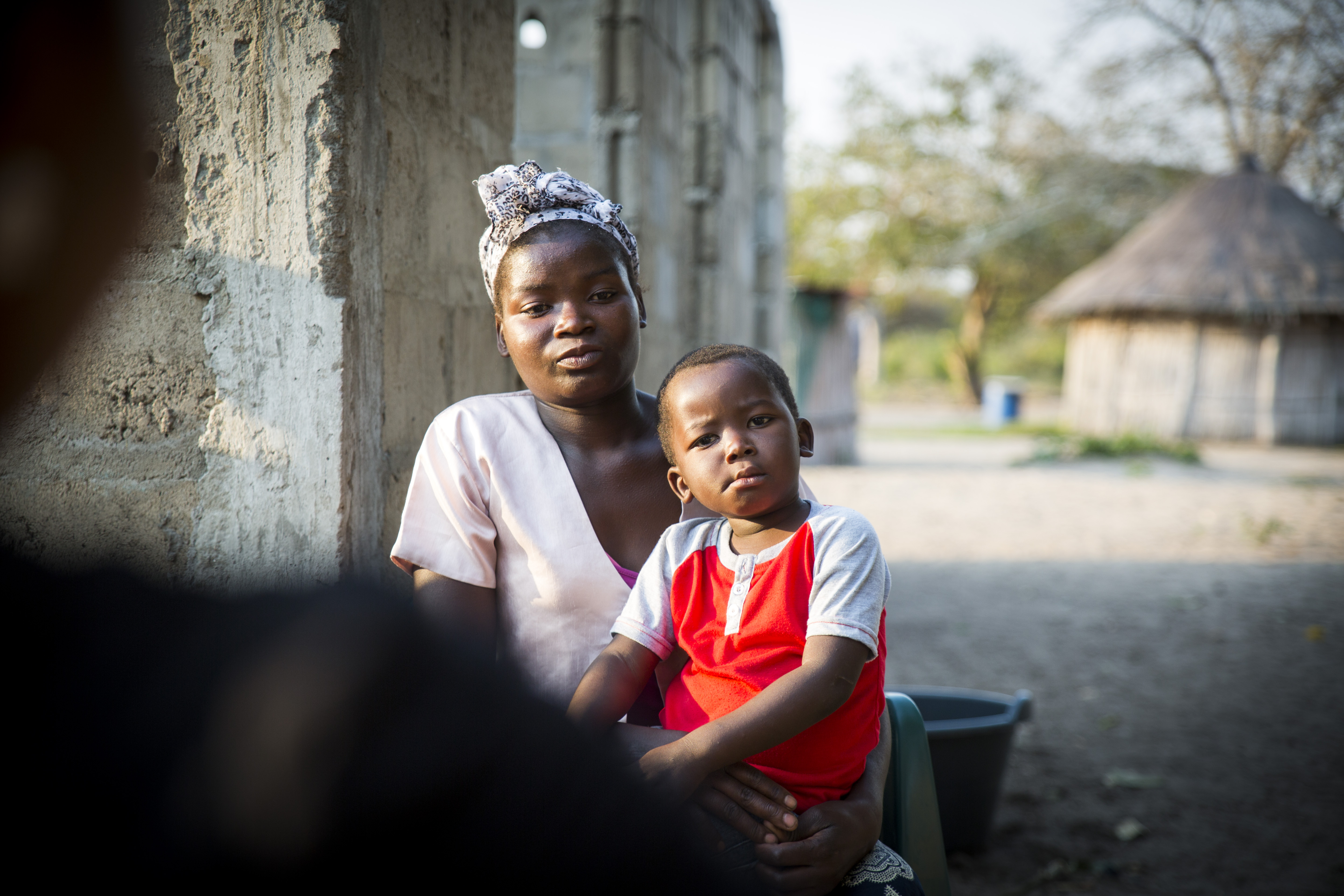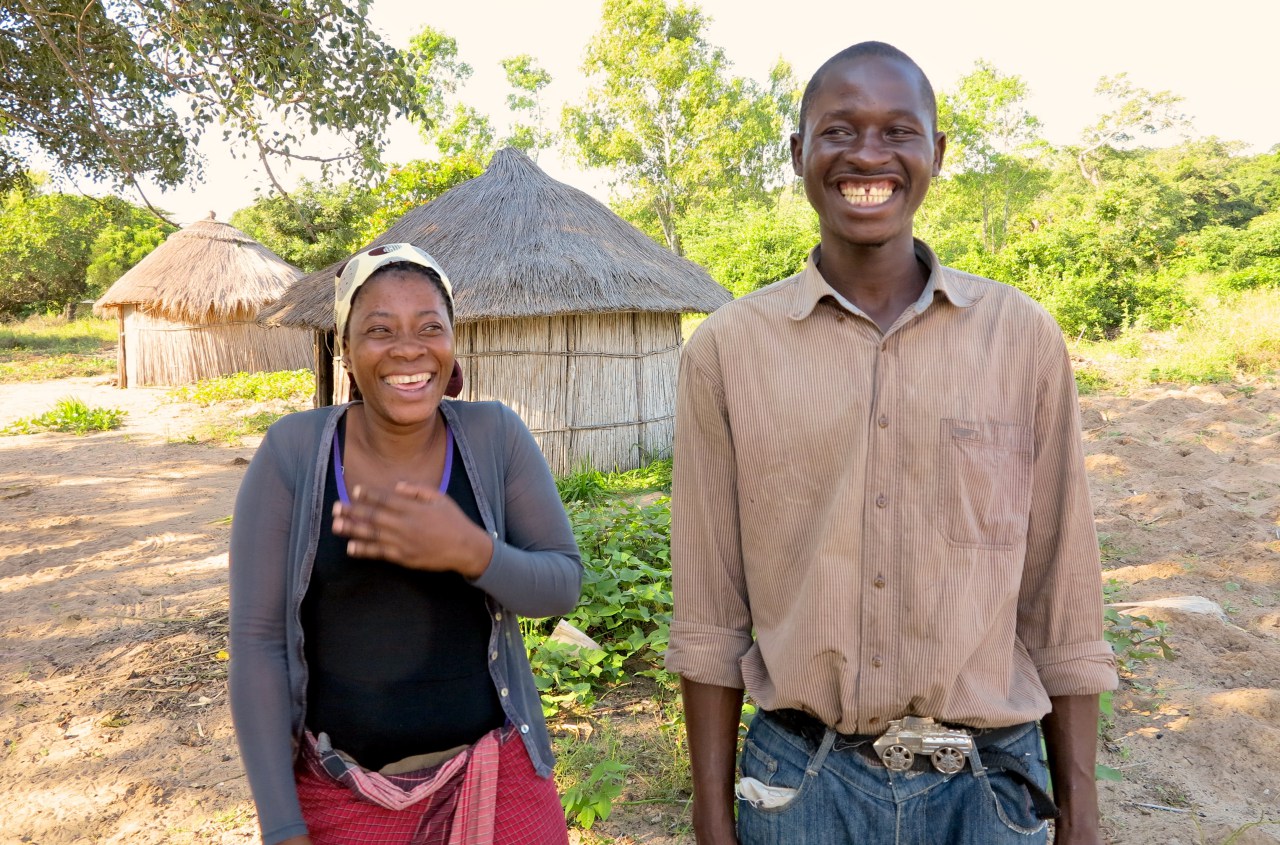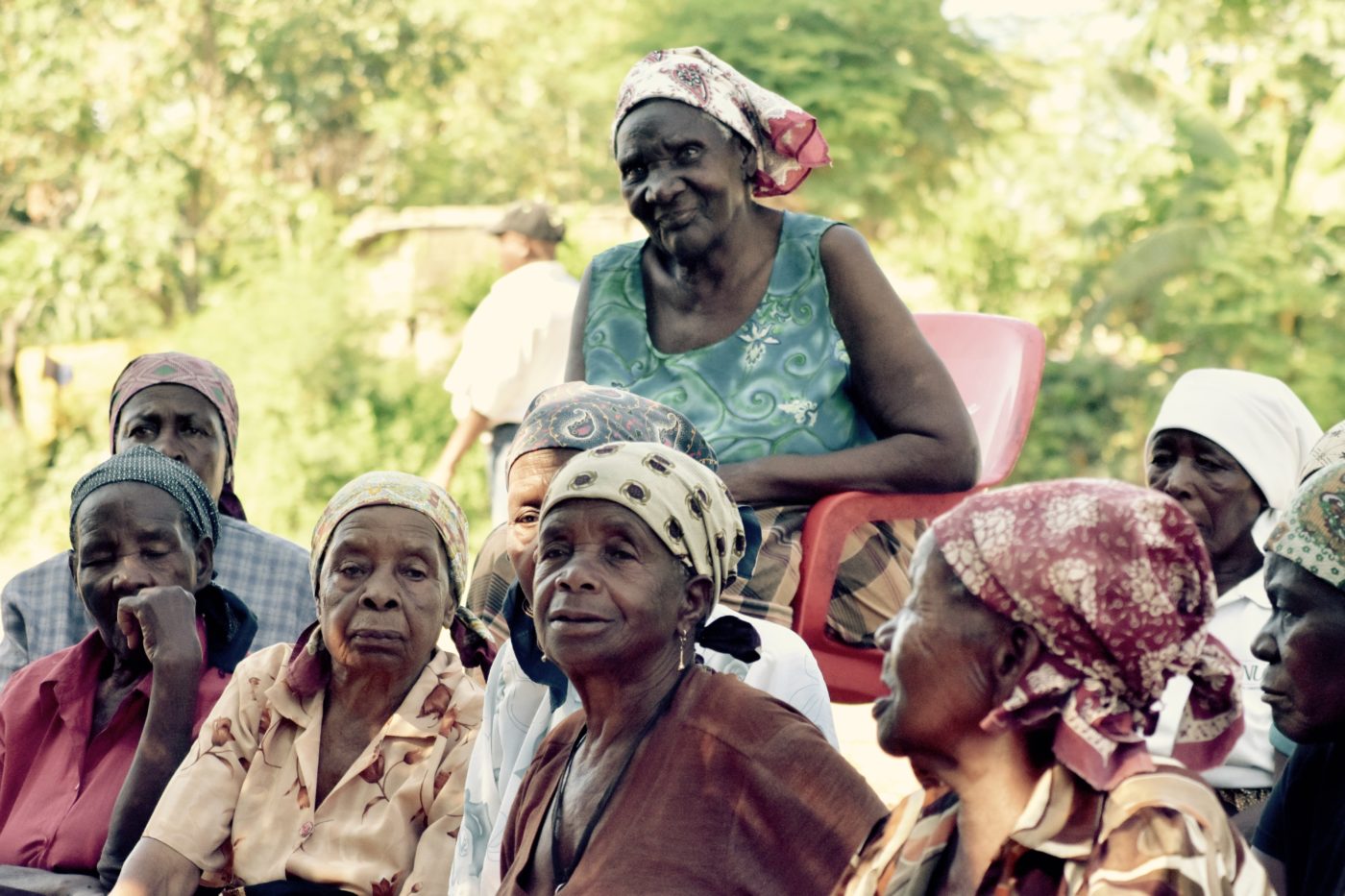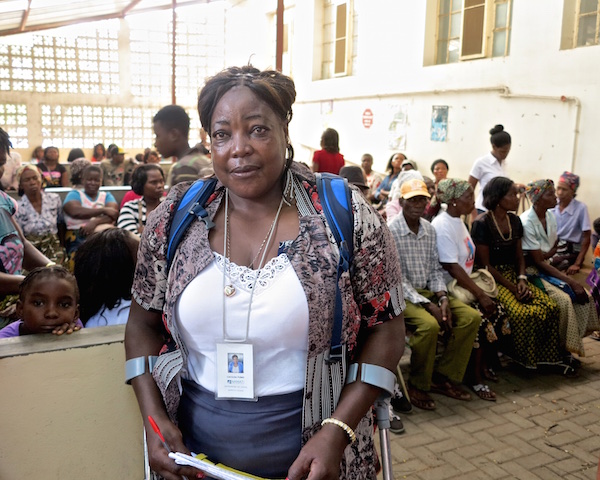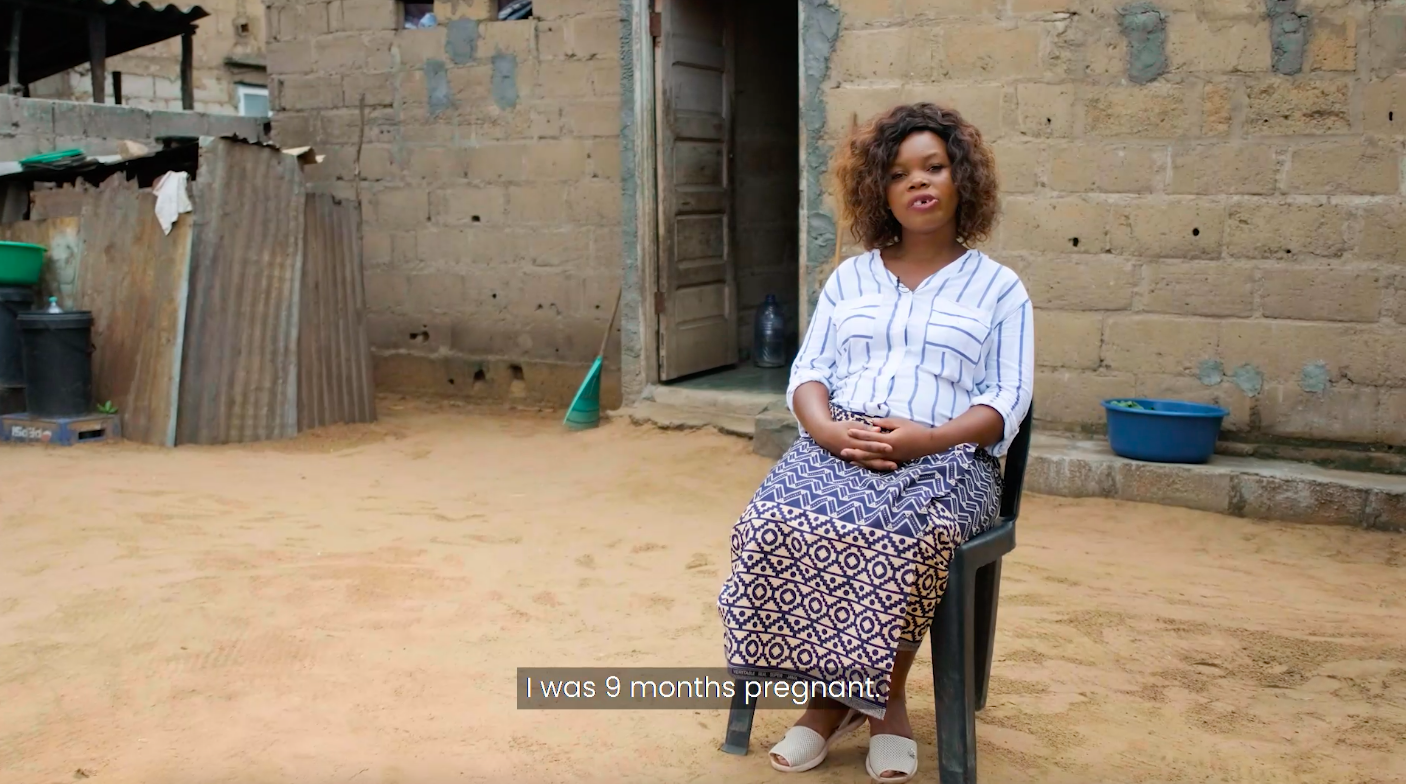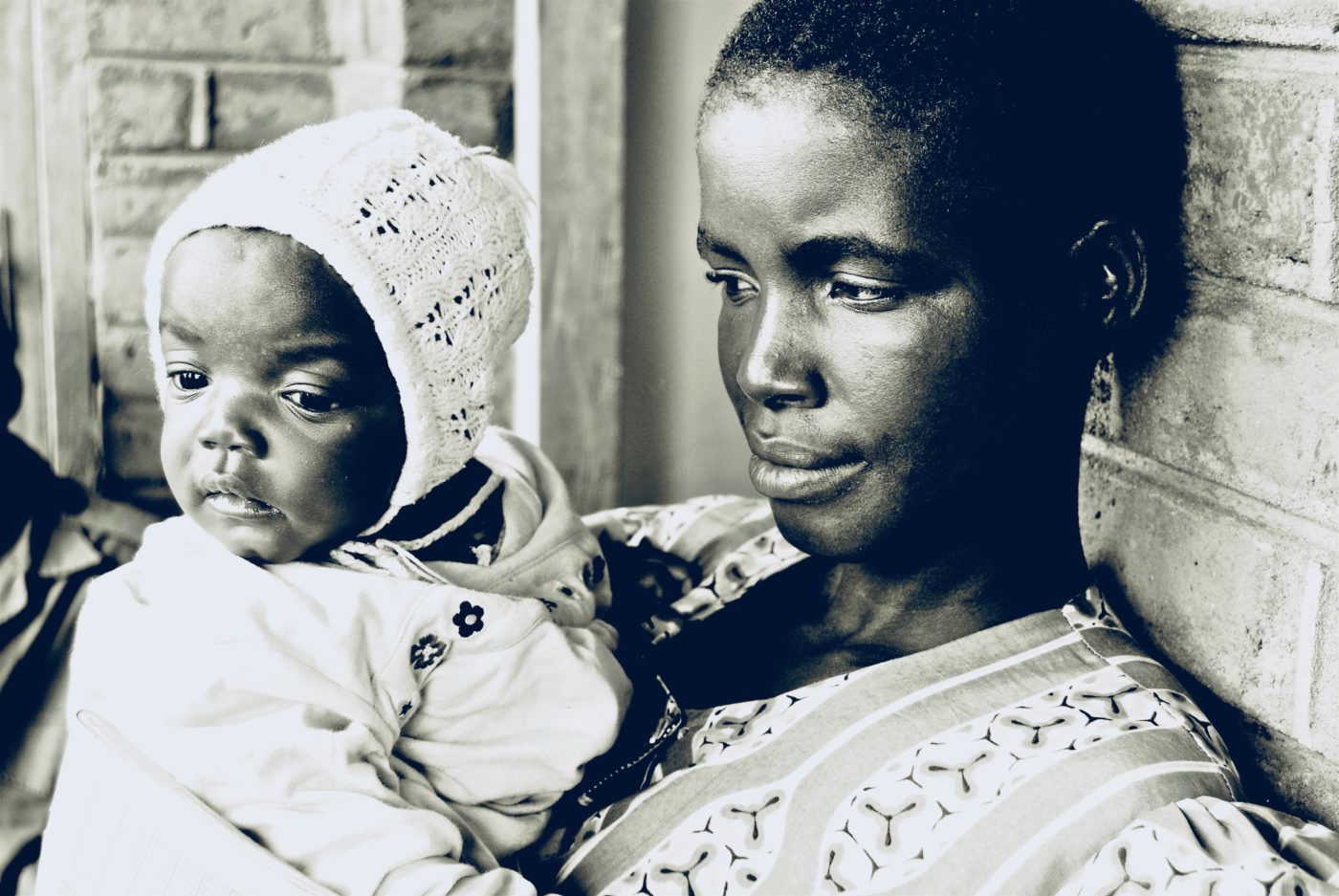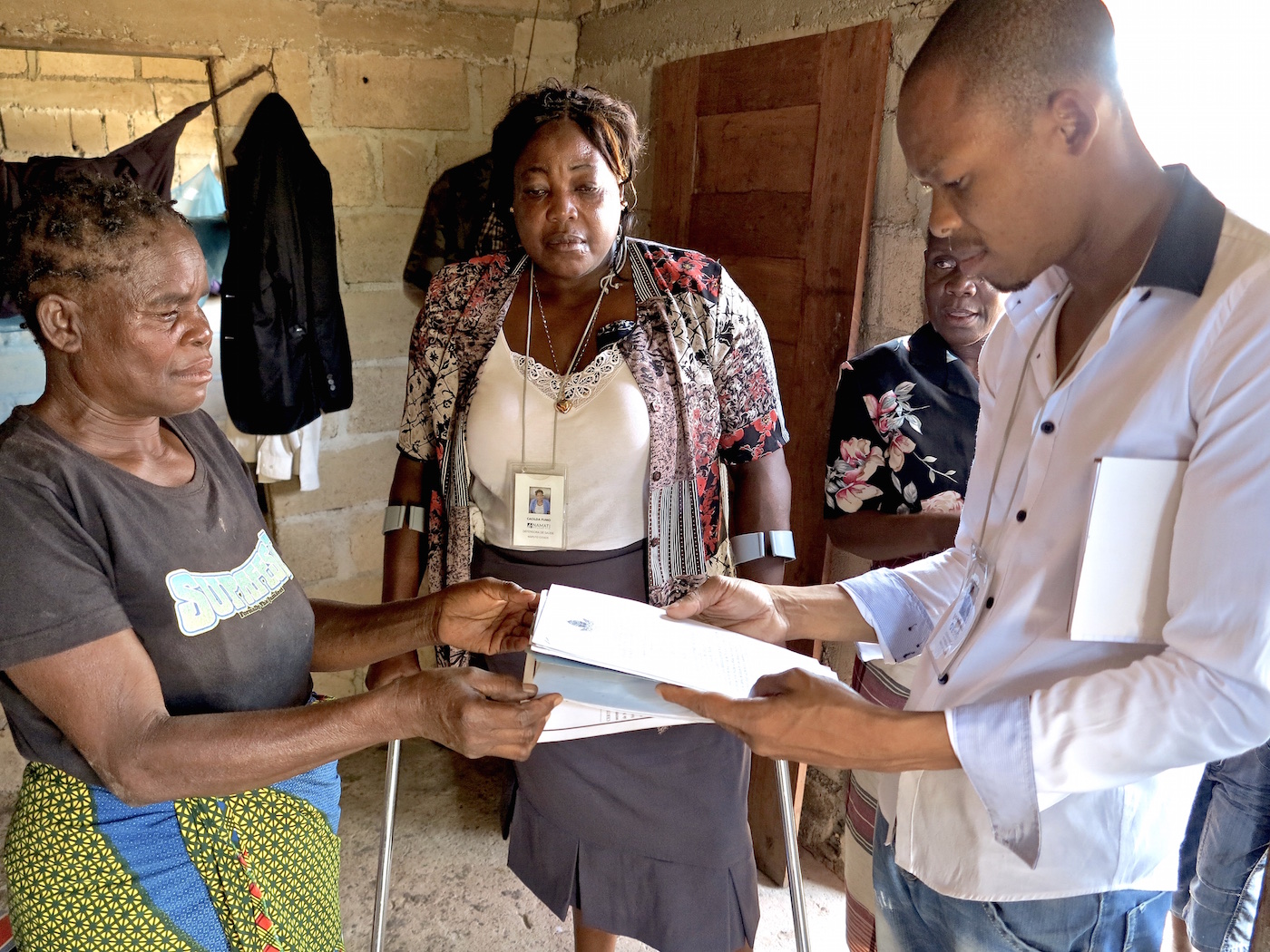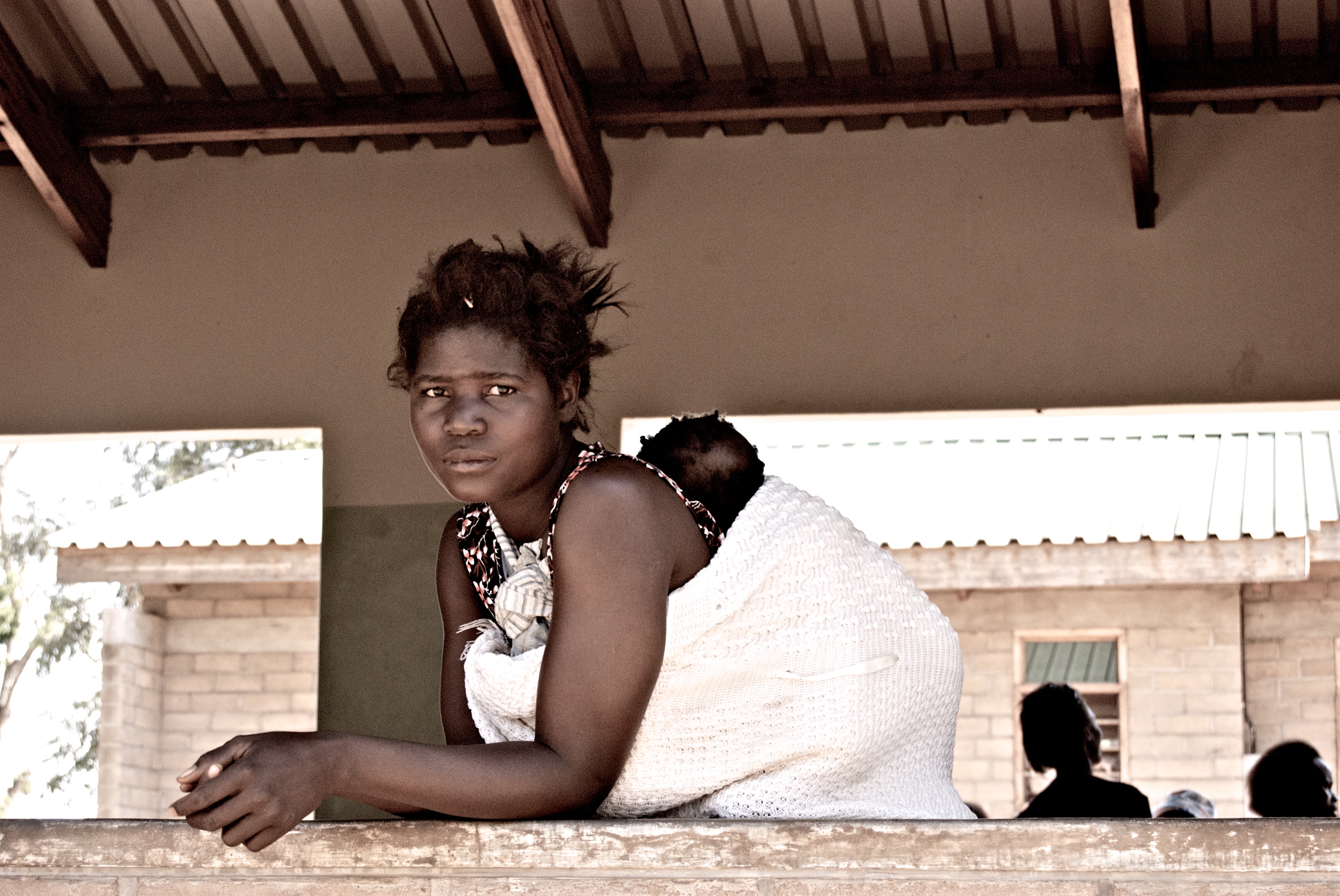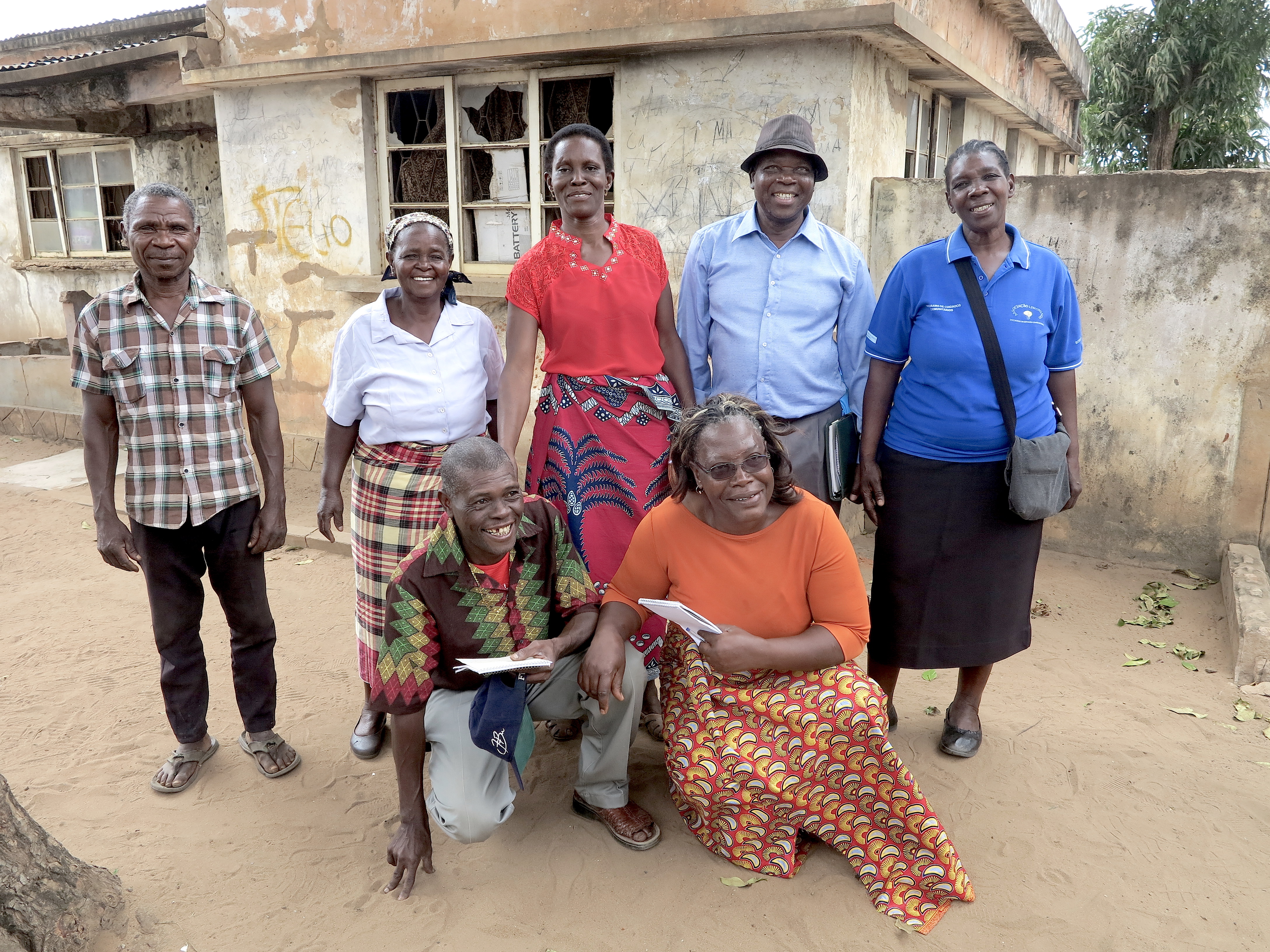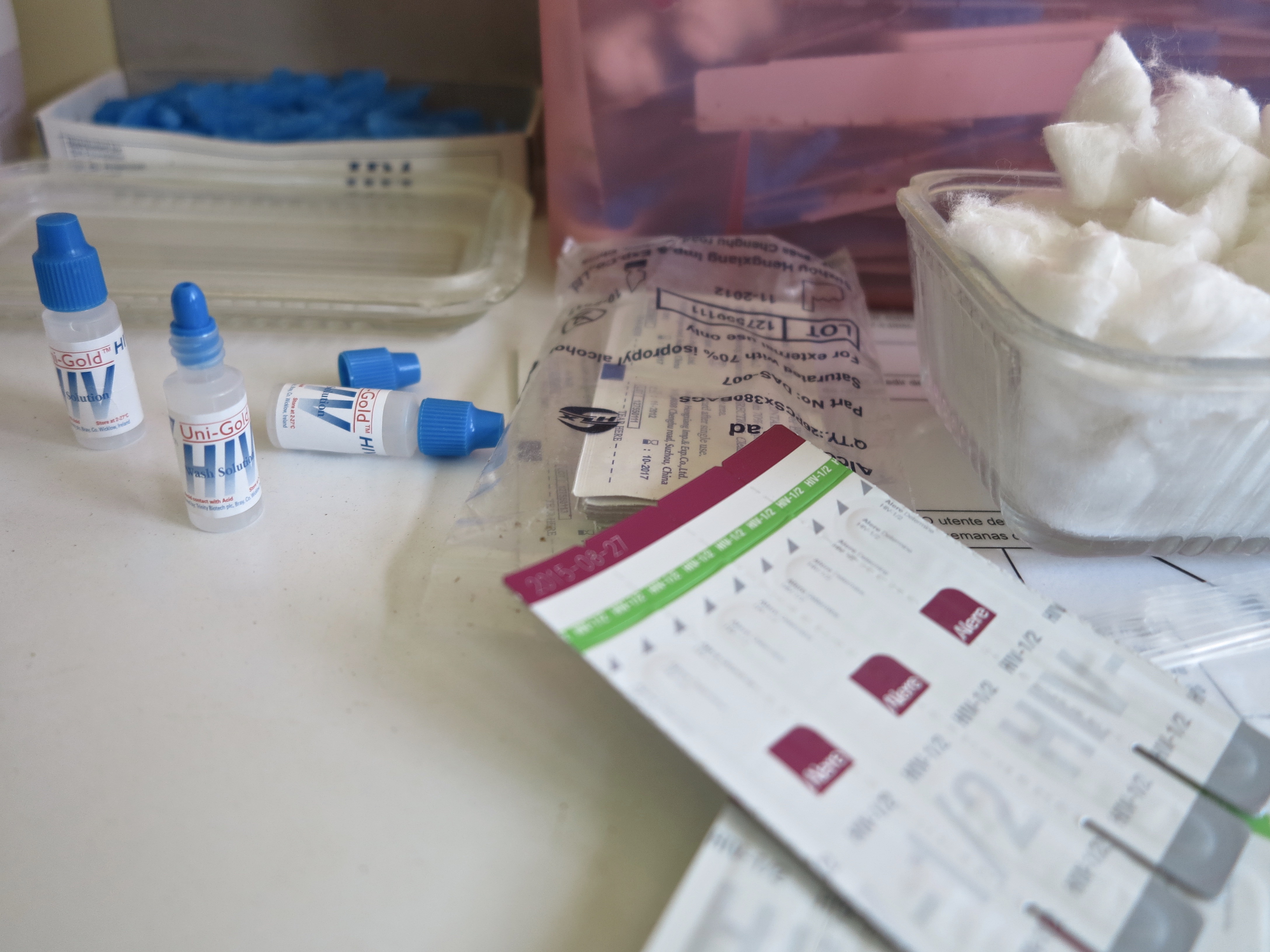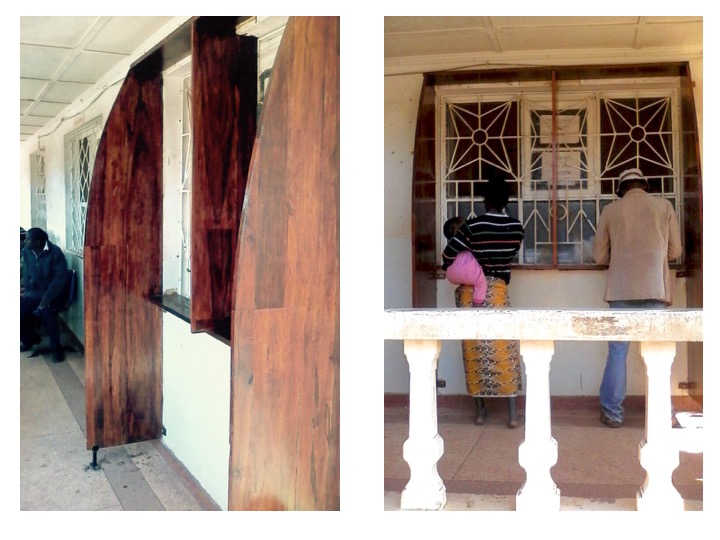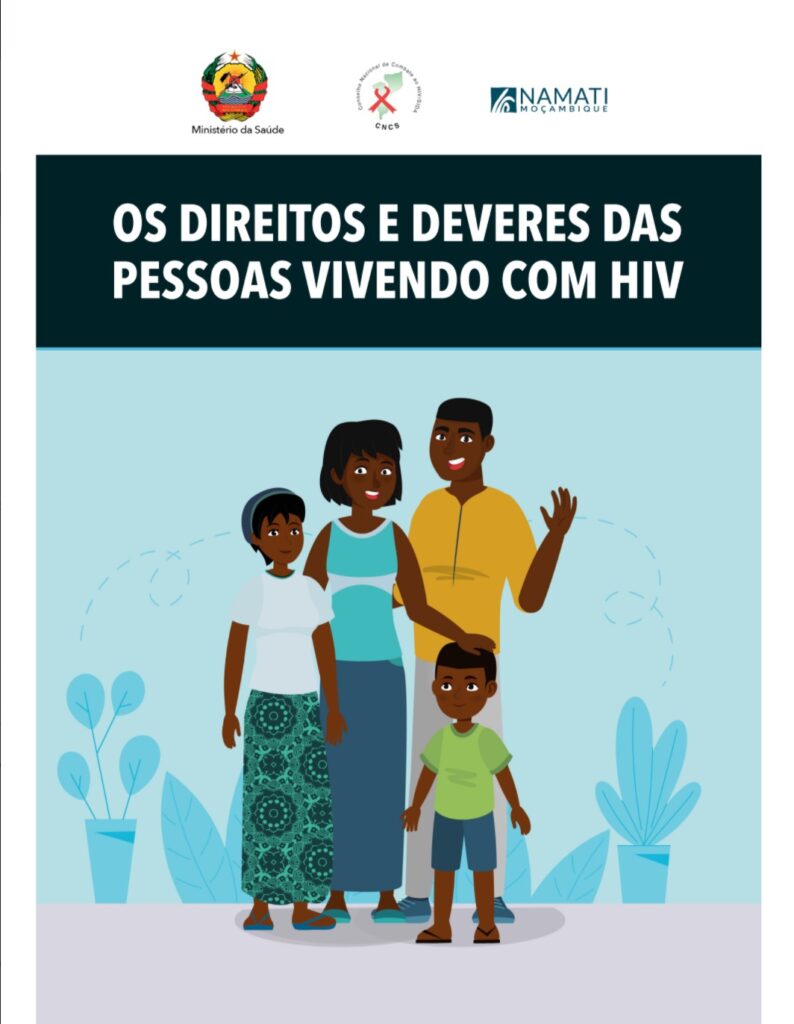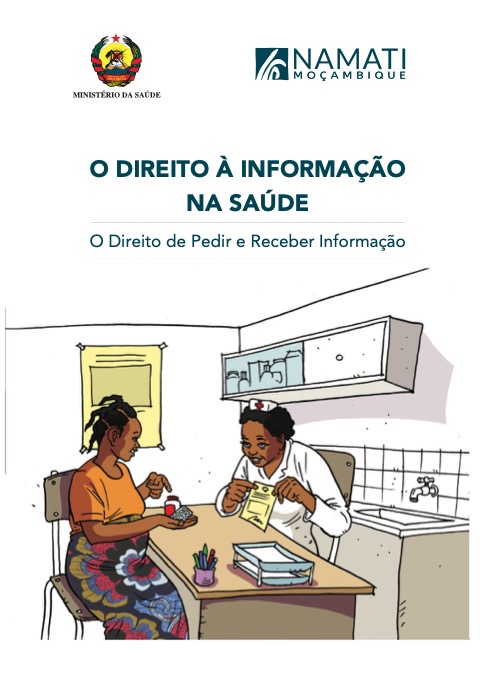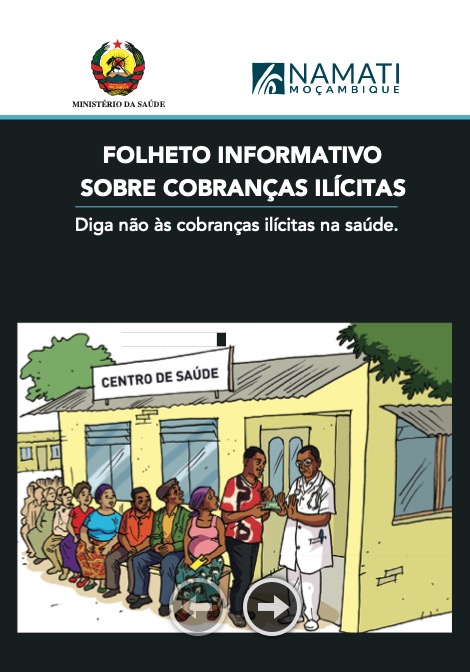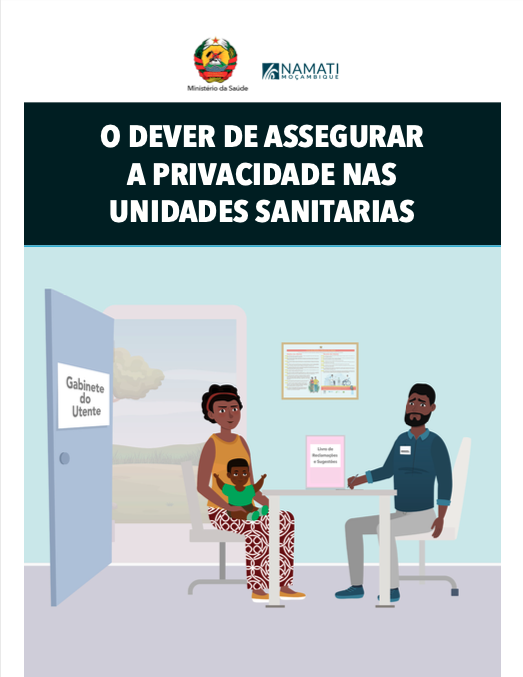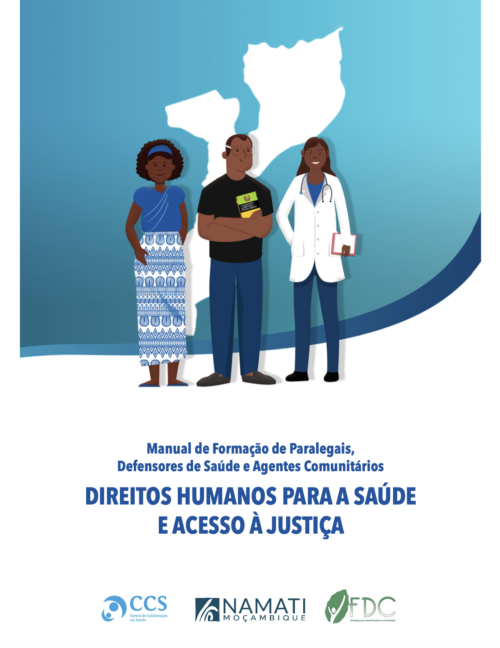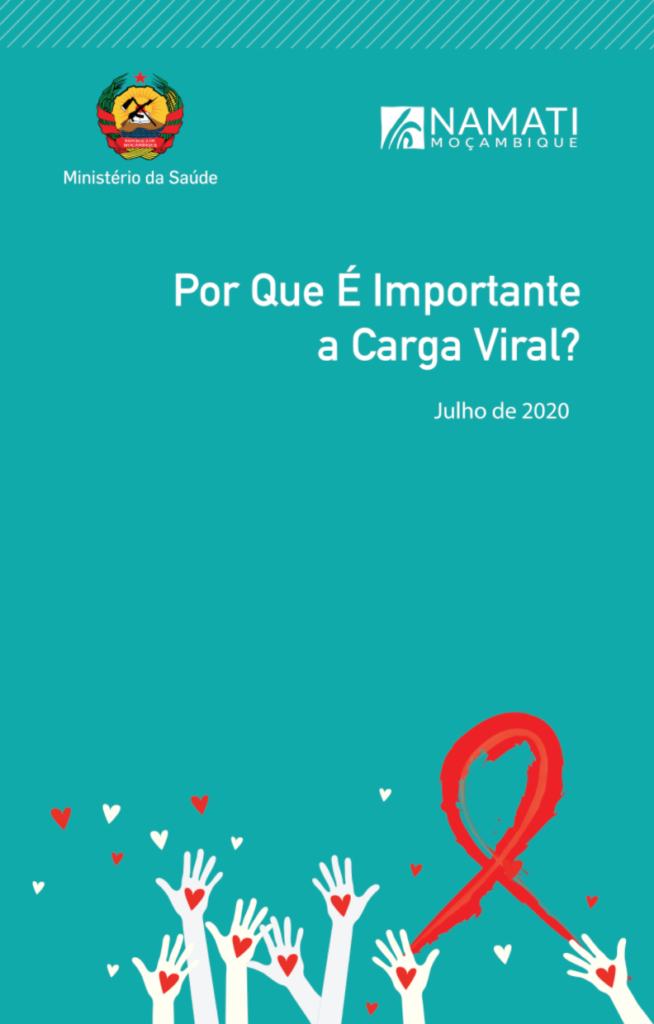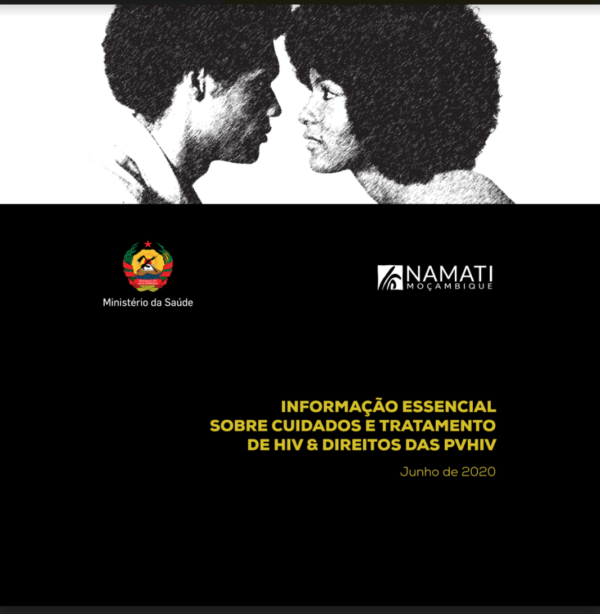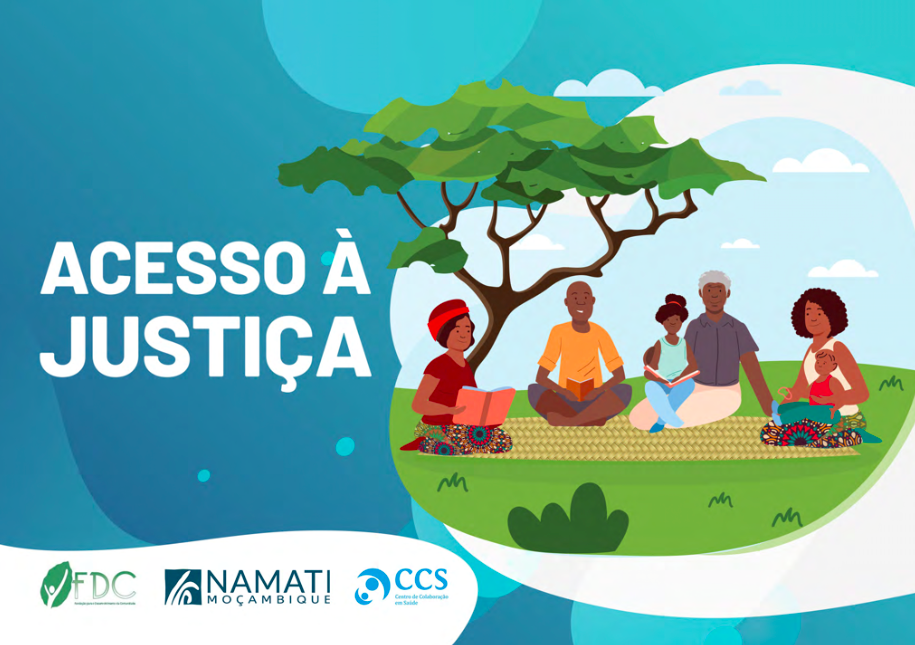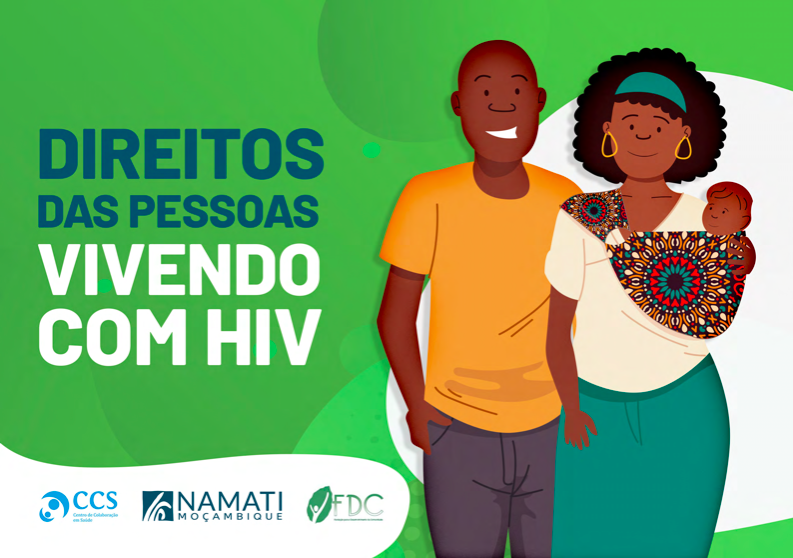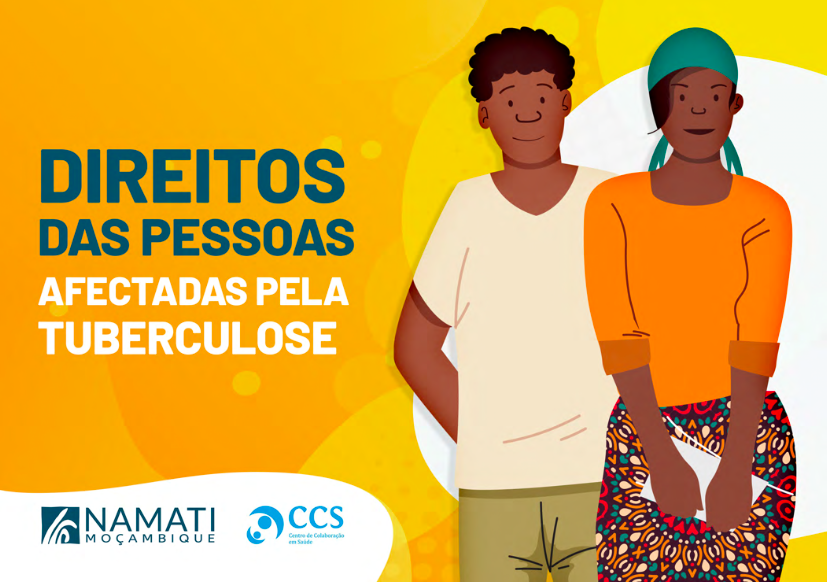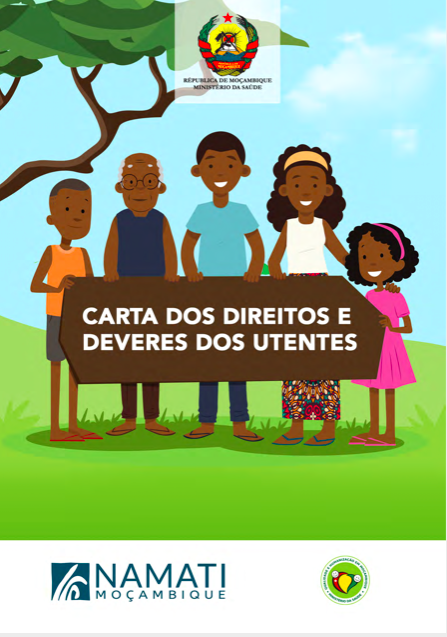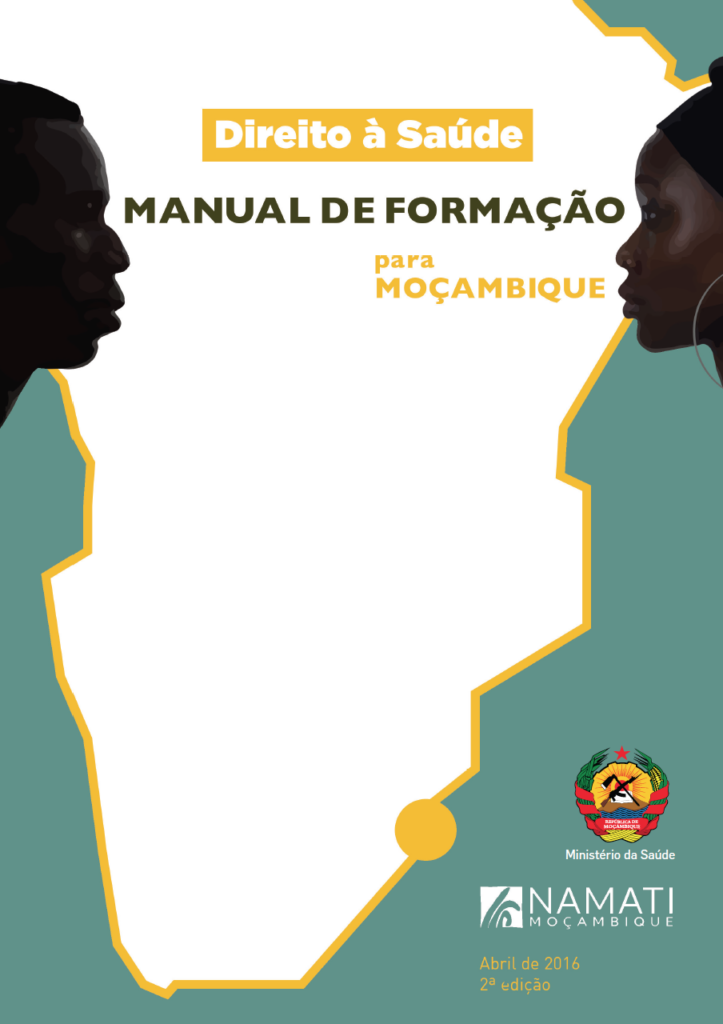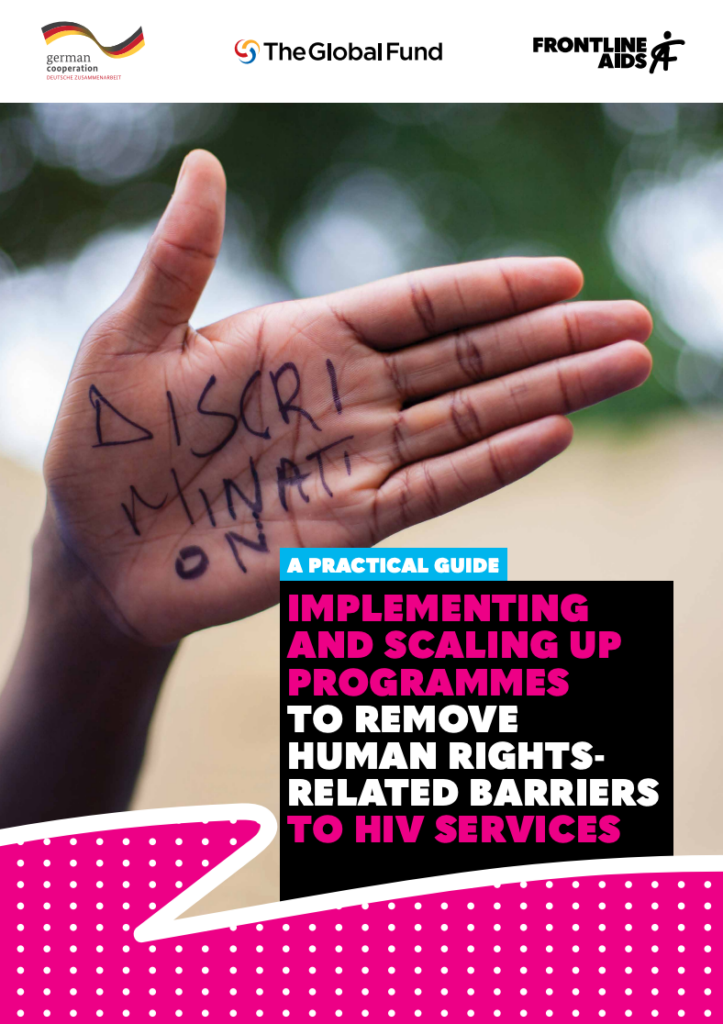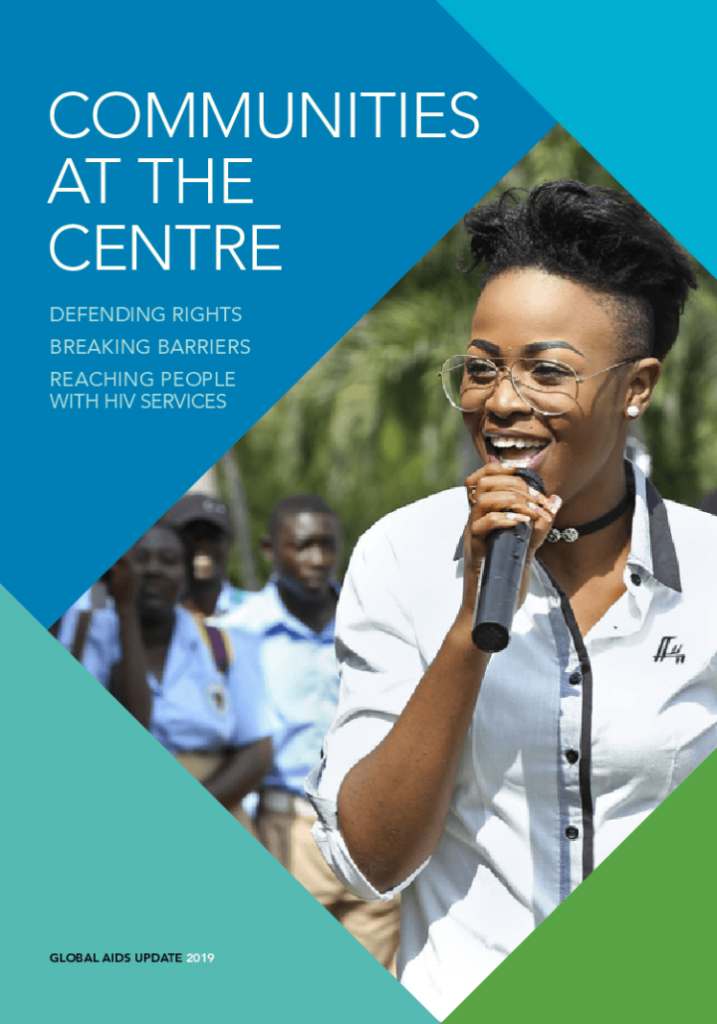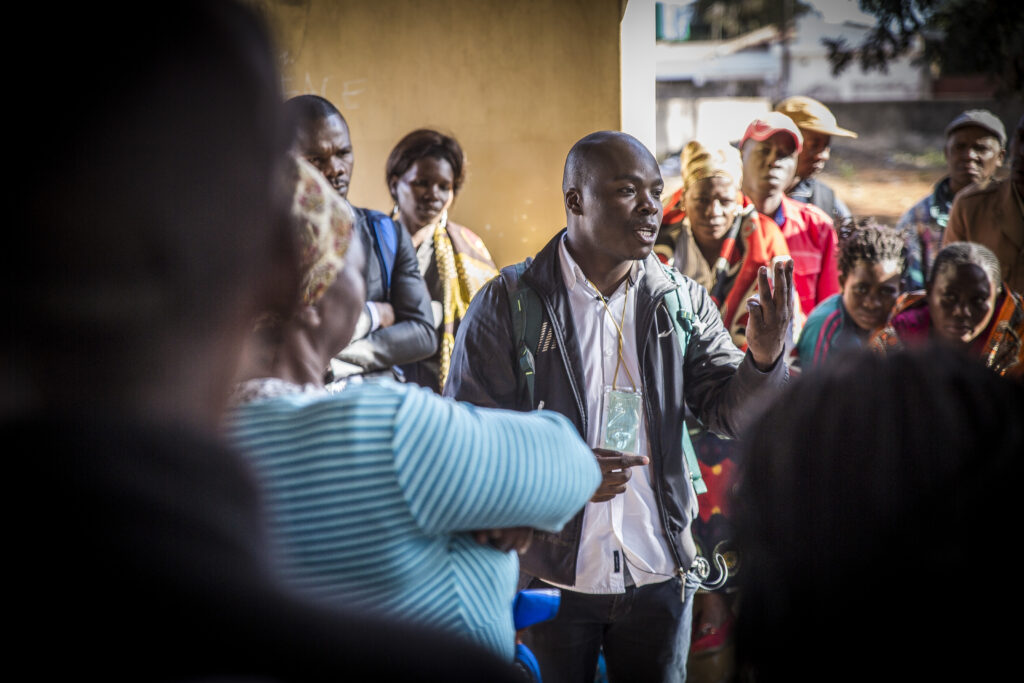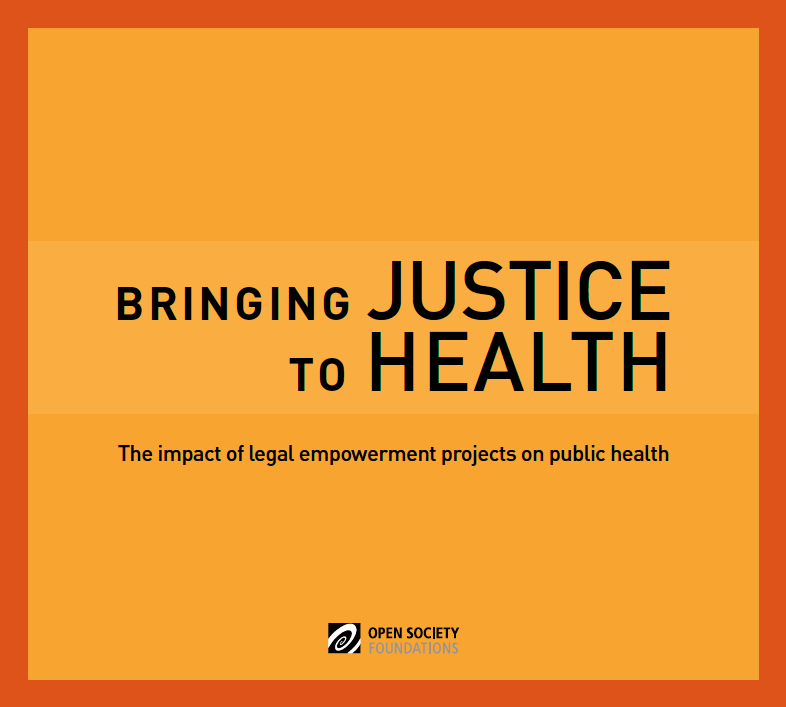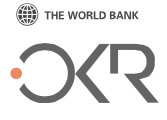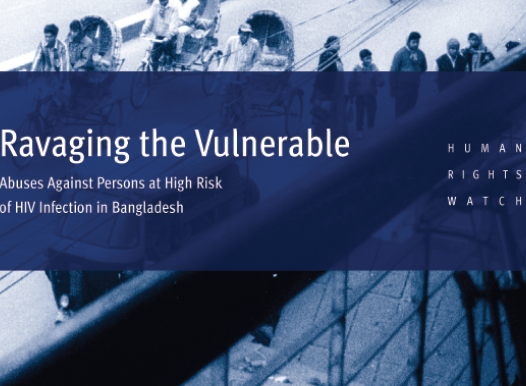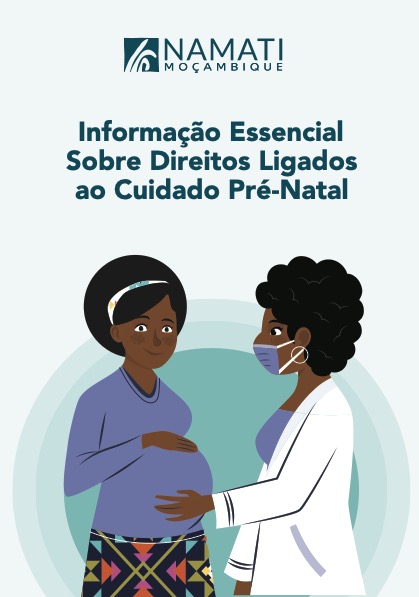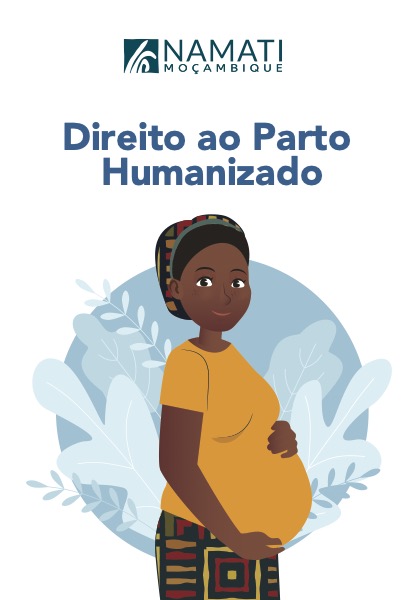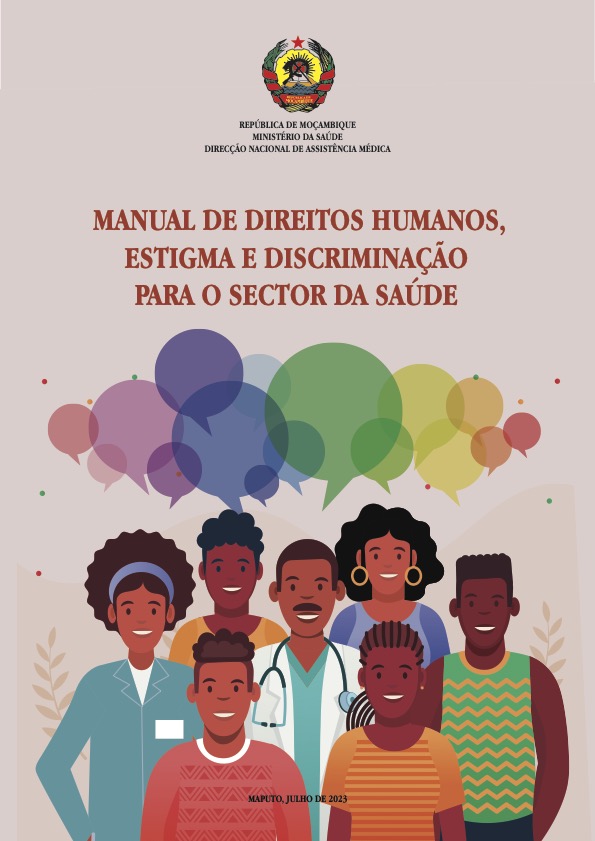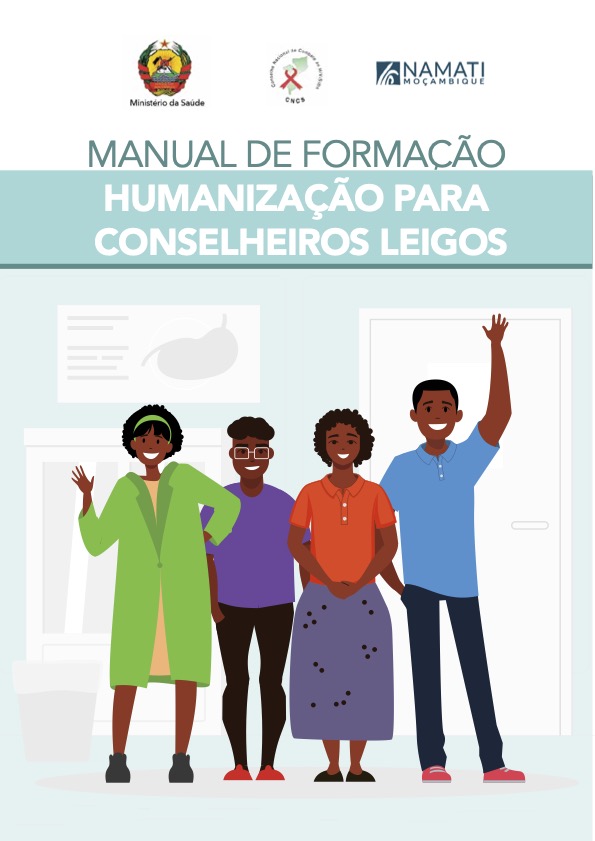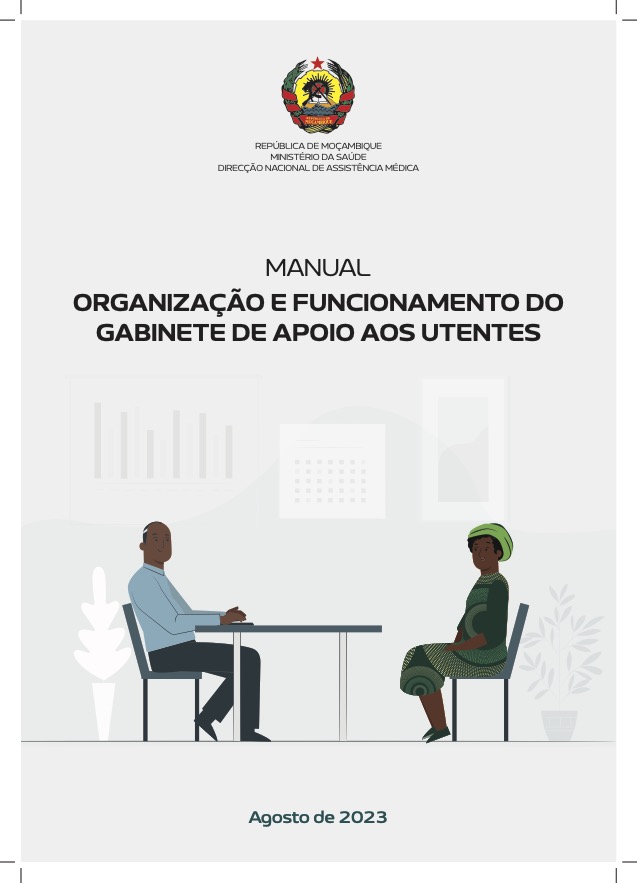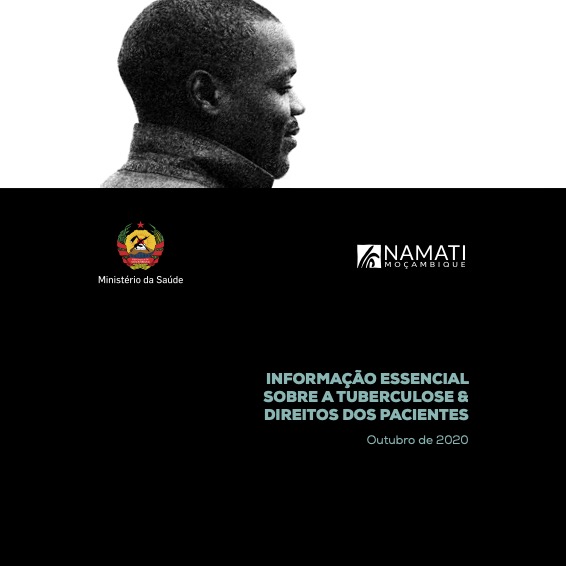The Challenge
Mozambique, like many other countries today, has progressive healthcare policies. But there are massive breakdowns in delivery: in many facilities, patients are treated disrespectfully, essential drugs are missing, or there is no privacy during medical visits.
Poor enforcement, fear, and power inequalities prevent those whose rights have been violated from seeking and receiving redress. These failures are a core reason that Mozambique has some of the worst health outcomes in the world.
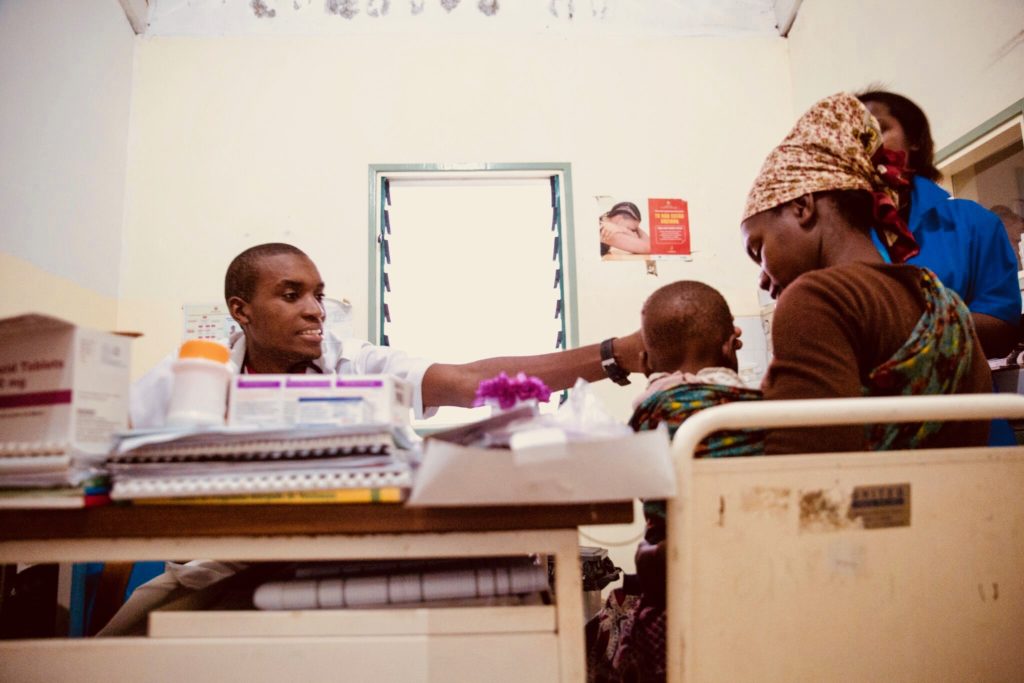
A mother and her child visit with a healthcare worker.
Namati’s Solution
Namati is building a movement of grassroots health advocates to put the power of health policy in people’s hands. Health advocates help bridge the gap between policy and practice by strengthening the accountability of services to poor and vulnerable communities.
They break down policy into simple terms and help people navigate the system, walking alongside patients to overcome the social and structural barriers that undermine human dignity and access to care.
Our health advocates work on the ground in 76 health facilities and catchment communities across the country to:
- Raise awareness of health rights and policies through educational sessions in health facilities, community meetings, and radio and television programming.
- Walk alongside patients and communities to identify and resolve barriers related to infrastructure, equipment, supplies and health worker behavior.
- Foster the leadership of people who are directly affected by injustice by helping them develop skills and confidence and supporting them to advocate for changes in the way services are delivered.
- Provide training to health workers with a focus on humanization, informed consent, the right to information, and grievance redress.
In addition to direct implementation, Namati provides training and mentoring of other civil society organizations. We developed a training curriculum for health advocates and community health workers and have mentored 67 community-based organizations, with 975 new health advocates/paralegals trained across the country since 2019.
“In the past, patients in labor who didn’t slip money into their health cards weren’t attended to. They had to give birth alone. But when we went with the health advocate and health committee to sit down with the nurse in charge, and we explained that pregnant women were choosing to give birth at home…[the] head nurse called a meeting and told them this had to stop, and now the midwives no longer demand bribes.”
– 26 year old female patient, Jangamo Health Cente
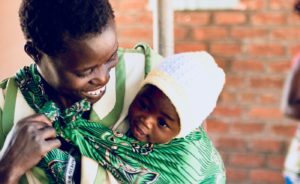
A mother and her baby
Addressing Barriers to Health Care
Since 2013, Namati has helped to resolve over 37,000 grievances in Mozambique.
In partnership with communities and health workers, we’ve addressed complaints related to provider absenteeism, mistreatment and neglect of women during labor, bribery, breaches of confidentiality around HIV testing and clinical consults, lack of information about diagnosis and treatment, misplaced clinical files, and lack of running water and functioning toilets at health facilities.
The majority of these grievances have been collective in nature – affecting anywhere from 10 to 20,000 people. Between 2015 and 2017, there was an average reduction of 43% in these types of violations at facilities with health advocates. To support this continued effort there have been over 20,000 frontline and community health workers trained.
Problems always existed, but no one reported them. …We had complaints registers but the few complaints we received often remained without any response whatsoever. People were afraid to write down ‘Nurse X did such and such.’ But now people’s concerns are heard and the community is finally opening up and talking. With the existence of the health advocate and village health committee they get a prompt response, and the health providers change immediately.
– Maternal and child health nurse, Morrumbene Health Center
Advocating for Systemic Change
Namati tracks data rigorously on every case the advocates take on. In the aggregate, this data provides invaluable insight into how health policy is working in practice. We then draw on this information to advocate for systemic changes that can impact the entire population, not just those living in catchment areas where health advocates are active. The following are a few examples:
- Namati played a key role in writing Mozambique’s National Strategy for the Improvement of Quality and Humanization of Health Care and the country’s first national strategy to combat bribery in the health sector.
- Namati works with village health committees to conduct bi-annual health facility assessments, which gather detailed feedback from communities and health workers and assist them in addressing and monitoring barriers to care. After seeing the impact firsthand, the Ministry of Health (MOH) formally recognized Namati’s approach as part of its national humanization strategy. Aside from supporting the direct implementation of bi-annual assessments in 62 health facilities across 4 provinces, Namati has produced a guide to enable the use of this methodology across the country and is supporting trainings of MOH managers and health committee members even in places where we are not on the ground.
- Together with the health leadership of one of Mozambique’s 11 provinces, Namati launched a joint humanization initiative at 144 health facilities. In 18 months, we saw a 23% increase in facilities with dignified bathrooms and a 19% increase in privacy in consult and testing rooms.
- We have collaborated with the Ministry of Health on the development and implementation of national trainings for health workers, including human rights, ethics, and communications curricula for doctors, nurses, and community health workers.
News & Resources
The Rights and Responsibilities of People Living With HIV
Os direitos e deveres das pessoas vivendo com HIV This brochure educates people living with HIV about their rights (including there rights to non-discrimination, confidentiality and universal anti-retroviral therapy) and their responsibilities, and it provides examples of common barriers to care.
The Right to Information in the Health Sector
O direito à informação na saúde: O Direito de Pedir e Receber Informação This brochure educates communities about the type of information that they have a right to receive in relation to health services (hours of operation of health facilities, expected turnaround time for lab tests, and names ...
Informational Brochure on Bribery in Health Facilities
Folheto Informativo sobre cobranças ilícitas: diga não às cobranças ilícitas na saúde. This brochure aims to educate communities about bribery in health facilities, including how to identify and report such cases.
The Obligation to Ensure Privacy in Health Facilities
O dever de assegurar a privacidade nas unidades sanitarias Um folheto para os trabalhadores de saúde que se concentra em estratégias concretas para assegurar a privacidade nas unidades sanitárias. This booklet provides healthcare workers with concrete strategies for ensuring privacy in health facilities.
Training Manual for Paralegals, Health Advocates and Community Workers: Health, Human Rights and Access to Justice
Manual de Formação de Paralegais, Defensores de Saúde e Agentes Comunitários: Direitos Humanos para a Saúde e Acesso à Justiça The Training Manual for Paralegals, Health Advocates and Community Workers: Health, Human Rights and Access to Justice is meant to be used in the promotion and ...
Why Is Viral Load Important?
Por Que É Importante a Carga Viral? Este folheto informativo explica a importância da carga viral para pacientes vivendo com HIV, incluindo como manter uma carga viral baixa, quando e como o teste de carga viral deve ser feito e o que significam os resultados do teste. ___ This informational brochure ...
Essential Information About HIV Care and Treatment & Rights of People Living with HIV
Informação essencial sobre cuidados e tratamento de VIH & direitos das PVHIV The educational booklet Essential Information About HIV Care and Treatment & Rights of People Living with HIV provides essential information about HIV; Mozambican Ministry of Health policies around diagnosis, care, and treatment of HIV; and the rights ...
Access to Justice
Acesso à Justiça Key populations and vulnerable populations are people or groups of people who are at high risk of exposure to HIV and violation of other rights such as the right to life, physical integrity, work, among others, due to stigma and discrimination associated with illness, gender, social ...
The Rights of People Living with HIV
Direitos das pessoas vivendo com VIH People living with HIV/AIDS (PLWHA) often see their human rights violated because of the stigma and discrimination associated with disease and health system barriers that include, for example, uncaring care and lack of confidentiality and privacy. These violations impede HIV prevention, diagnosis and ...
The Rights of People Affected by Tuberculosis
Direitos das pessoas afetadas pela tuberculose People affected by tuberculosis (TB) often see their human rights violated because of the stigma and discrimination associated with disease and the barriers linked to the health system. Human rights violations related to tuberculosis also include limited access to screening and preventive treatment, insufficient ...
The Patient Bill of Right and Responsibilities
Carta dos direitos e deveres dos utentes The Patient Bill of Right and Responsibilities, approved and adopted in 2007 by the Ministry of Health (MISAU), reaffirms fundamental human rights in the provision of health care and protects human dignity and integrity, as well as the right to autonomy. It is ...
The Protection of Key Populations
Proteção das Populações Chave This brochure, produced as part of the partnership between Namati and the FDC, aims to disseminate the rights of sex workers and men who have sex with men in the face of police action, service, search and arrest; the common violations to which ...
The Right to Health Training Manual for Mozambique
Manual de Formação para Moçambique The Right to Health Training Manual for Mozambique This manual is a practical tool to empower communities on the meaning of the right to health and how to identify and lead in case of violation of these rights. The manual was designed ...
A Practical Guide: Implementing and Scaling Up Programmes to Remove Human Rights Barriers to HIV Services
Guia Prático: Implementação e Alargamento de Programas para Remover Barreiras de Direitos Humanos aos Serviços de VIH This guide has been developed to support implementers to plan, roll out and scale up effective, evidence-informed programs to remove human rights-related barriers to HIV services. (A case study ...
Communities at the Centre: Defending Rights, Breaking Barriers, Reaching People with HIV Services
Comunidades no centro: defender direitos, quebrar barreiras, chegar às pessoas com serviços de VIH UNAIDS' Global Update for 2019 takes stock of the state of HIV epidemic around the world, including the advancements that have been made and the challenges that remain. (Namati's Right to Health work is highlighted ...
Transforming Policy into Justice: The Role of Health Advocates in Mozambique
Transformar a Política em Justiça: O Papel dos Defensores da Saúde em Moçambique Despite expanding policy commitments in many poor countries, health care is often a failure at the point of delivery. Lack of information, poor enforcement, and power dynamics prevent those whose rights have ...
Recommendations for addressing bribery in the health sector
Recomendações para lidar com casos de suborno no sector da saúde This guide contains a series of recommendations for both policy and practice focused on the identification, prevention and combat of bribery in the health sector in Mozambique. It is a practical tool that can be used ...
Participatory Health Facility Assessment Tool and Guide
Guia de levantamento dos desafios das unidades sanitárias This participatory health facility assessment tool can be used to gather community feedback regarding the quality and humanization of health services. The process engages communities and health workers in dialogue to identify and address barriers to care. This practical methodology ...
Bringing Justice to Health: The Impact of Legal Empowerment Projects on Public Health
Levar a Justiça à Saúde: O Impacto dos Projetos de Empoderamento Legal na Saúde Pública For millions of people around the world, human rights violations are part and parcel of everyday life. Sexual violence, discrimination in housing, unwarranted dismissal from employment, unfair evictions, denial of child ...
Allies Unknown: Legal Empowerment and Social Accountability
Aliados Desconhecidos: Empoderamento Legal e Responsabilidade Social Published in the journal Health and Human Rights, this essay suggests that two strands of social action which have hitherto developed separately — legal empowerment and social accountability — ought to learn from one another. Legal empowerment efforts grow out of the tradition of ...
Ravaging the Vulnerable: Abuses Against Persons at High Risk of HIV Infection in Bangladesh
Devastando os Vulneráveis: Abusos Contra Pessoas com Alto Risco de Infeção pelo VIH no Bangladesh Bangladesh is stoking an emerging AIDS epidemic with violent police abuse of sex workers, injection drug users and men who have sex with men. In this 51-page report, Human Rights Watch documents ...
The Right to Prenatal Care
Informaçåo Essencial Sobre Direitos Ligados ao Cuidado Prê-Natal This brochure educates communities about rights related to prenatal care, including the right to information (about the frequency and timing of prenatal visits, the patient's health and lab results, concerning signs/symptoms) and the right to essential services and ...
The Right to Humanized Birth
Direito ao Parto Humanizado This brochure educates communities about the right to humanized labor and delivery, including the woman's right to information and informed consent regarding herself and her baby, the right to dignity and autonomy, the right to have a male or female companion present, and the right ...
Manual on Human Rights, Stigma and Discrimination in the Health Sector
Manual de Direitos Humano Estigma e Discriminacao
Training Manual: Humanization for HIV Counselors
Manual de formação: Humanização para conselheiros leigos This is a comprehensive training package for lay HIV counselors in collaboration with the MoH. The modules cover a range of topics, including stigma and discrimination, health service barriers, principles of communication for HIV counselors, and ensuring informed consent and respect ...
Manual to Guide the Functioning of Patients' Rights Offices at Health Facilities
Manual organização e funcionamento do gabinete de apoio aos utentes
Essential Information About Tuberculosis and Patients’ Rights
Informação Essencial Sobre a Tuberculose & Direitos dos Paciente This educational booklet provides essential information about TB; Mozambican Ministry of Health policies around prevention, diagnosis and treatment of TB; and the rights of people living with TB - with the goal being to empower patients, community members and health ...

